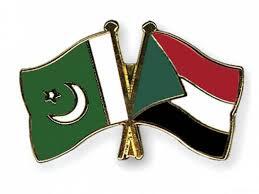Pakistan has pledged to support Sudan in upgrading its maritime infrastructure, offering technical assistance and expertise to help modernize the African nation’s ports and enhance regional trade connectivity.
The commitment was made by Federal Minister for Maritime Affairs Muhammad Junaid Anwar Chaudhry during a meeting with Sudan’s Ambassador to Pakistan, Salih Mohamed Ahmed Mohamed Siddig, who called on him in Islamabad on Thursday.
During the discussion, both sides explored avenues for collaboration in maritime development, port modernization, logistics enhancement, and technology-driven port operations. Ambassador Siddig said Khartoum was particularly keen on establishing a direct shipping line between Sudanese and Pakistani ports to strengthen trade and logistics ties between the two countries.
He emphasized that a dedicated route could lower transport costs and improve supply chain connectivity between East Africa, the Middle East, and South Asia. Several landlocked African nations, including Chad, the Central African Republic (CAR), Ethiopia, and Uganda, depend on Sudan’s Red Sea ports—particularly Port Sudan, which handles about 90 percent of the country’s international trade—for access to global markets.
Minister Junaid Chaudhry welcomed the proposal, saying Pakistan was ready to help Sudan modernize its port systems. He noted that Pakistan had recently approved the National Artificial Intelligence (AI) Policy 2025, under which the Maritime Affairs Ministry is integrating AI into the management of Pakistani ports.
“We are shifting our ports onto AI-based systems to improve efficiency and reduce operational delays,” Chaudhry said, adding that Pakistan could help Sudan adopt similar technologies. “We can assist Sudan in equipping its ports with AI, particularly Port Sudan, which handles about 90 percent of the country’s international trade.”
The minister stressed that modern, technology-driven ports are crucial for economic growth and trade facilitation, adding that Pakistan’s experience in automation, smart logistics, and digital port management could be highly beneficial for Sudan.
He further pointed out that Sudan’s location gives it the potential to serve as a key trade hub, offering improved maritime access for its landlocked neighbors while also linking Pakistan with Central Asia, East Africa, and beyond. He reaffirmed Islamabad’s commitment to regional connectivity under its Blue Economy Vision 2030 initiatives.
Ambassador Siddig also expressed interest in expanding bilateral trade beyond the maritime sector, particularly in pharmaceuticals and agricultural machinery. Highlighting Sudan’s growing need for tractors to strengthen its agricultural output, the envoy welcomed Pakistan’s proposal for a joint venture to assemble tractors at the Gwadar Free Zone.
Minister Chaudhry said such a project could help meet Sudan’s domestic demand while promoting exports to other African markets.
Both sides agreed to maintain close coordination between their respective ministries and develop practical mechanisms for cooperation. The meeting concluded with a shared commitment to deepen maritime and industrial ties and enhance technological collaboration between Pakistan and Sudan.




